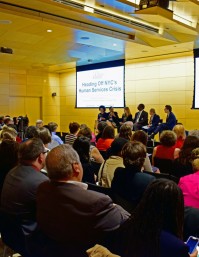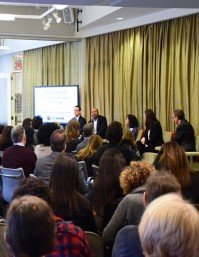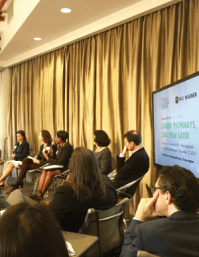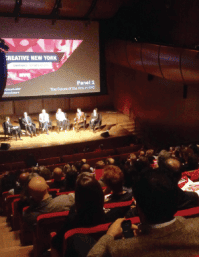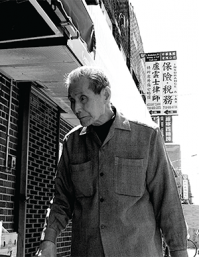Event - April 2018
Scaling Up Small Businesses in the BronxOn the morning of May 16th, the Center for an Urban Future will hold a forum, "Scaling Up Small Businesses in the Bronx," featuring Bronx Borough President Ruben Diaz Jr., Council Member Mark Gjonaj, Joyce Moy of the Asian Research Institute, Jessica Johnson of Johnson Security Bureau, Kerry A. McLean of WHEDco, Anthony Ramirez II of Mainland Media and The Bronx Beer Hall, and Hashem Yehiya of Tasty Picks.
Event - March 2018
Scaling Up Small Businesses on Staten IslandOn the morning of April 17th, the Center for an Urban Future will hold a forum, "Scaling Up Small Businesses on Staten Island," featuring Staten Island Borough President James Oddo; Mark Foggin of Foggin Strategies; Jill Johnson of the Institute for Entrepreneurial Leadership; Angelina Malerba of Angelina's Ristorante; T.J. Moore of Bedford Carp Construction; and Gary Stetz of MetroLube.
Event - February 2018
Scaling up Small Businesses in QueensNEW DATE: On the morning of March 20th, the Center for an Urban Future will hold a forum, "Scaling Up Small Businesses in Queens," featuring Gloria Abreu of Family United Home Care; Commissioner Gregg Bishop of the New York City Department of Small Business Services; Seth Bornstein of Executive Director of the Queens Economic Development Corporation; Sean Peckett of Soccer Friends USA; and Yanki Tshering of Business Center for New Americans (BCNA).
Event - December 2017
Scaling Up Small Businesses in BrooklynOn the morning of January 24th, the Center for an Urban Future will hold a forum, "Scaling Up Small Businesses in Brooklyn," featuring Noah Bernamoff of Mile End Deli & Black Seed Bagels; Nancy Carin of the Business Outreach Center Network; Eladia Causil Rodriguez of Eladia’s Kids; Edward Rogoff of LIU Brooklyn School; and Alimata Zabsonre of Alima's Hair Braiding.
Event - May 2017
Heading Off New York City’s Human Services CrisisNonprofit organizations are increasingly responsible for providing the essential services that form the backbone of the city's social safety set. But the viability of this arrangement is under threat as costs continue to rise while government contracts remain insufficient. A recent Center for an Urban Future forum explored the problem and offered ideas for developing a more sustainable future.
Event - February 2017
Driving Innovation: Cities as Models for Urban Policy ChangeOn February 13, 2017, the Center for an Urban Future and NYU Wagner with support from the Citi Foundation hosted a forum to explore a crucial question: With a change of leadership in Washington, will cities be able to maintain—or even accelerate—the pace of progress?
Event - December 2016
Expanding Opportunities in Brooklyn’s Tech and Creative SectorsEnsuring that more residents benefit from the boom of jobs in Brooklyn’s technology and creative sectors is both a major challenge and vital opportunity for the future of the borough. A CUF symposium brought many promising ideas to light.
Event - June 2016
Video - How can NY State integrate job training into its economic development strategy?New York State commits nearly $1 billion each year to economic development projects across the state through its 10 Regional Economic Development Councils (REDCs). Thus far, however, REDC’s have only made limited investments in job training and workforce development. On June 14, 2016 Center for an Urban Future and NYATEP held a policy forum on how New York can strengthen connections between its signature economic development initiative and job training programs.
Event - January 2016
Video - A Door to OpportunityAt a time when the economy is producing few decent-paying jobs for those without a college degree, our January 12, 2016 symposium explored what state policymakers can do to improve the outcomes for community college students throughout New York.
Event - January 2016
VIDEO - Career Pathways, One Year LaterOn Tuesday, December 15, 2015, the Center for an Urban Future and NYU Wagner convened a forum on realizing the promise of Career Pathways, the city's new approach to workforce development.
Event - October 2015
The Future of the Arts in NYCOn October 14, 2015, the Center for an Urban Future in partnership with the City of New York organized a half-day conference at the Morgan Library and Museum to discuss the future of the arts in New York. In this recap, we share some important take-aways from the discussion and a few ideas that we found particularly compelling and achievable.
Event - March 2015
Video - Making New York’s Workforce Development System More AccountableOn Wednesday, April 22, 2015, Center for an Urban Future and NYATEP held Making New York’s Workforce Development System More Accountable, a symposium on how wage reporting data can help the state measure the success of its workforce development system.
Event - December 2014
VIDEO - Symposium for Re-Envisioning New York’s Branch LibrariesOn December 4, 2014, we convened a dynamic conference for rethinking and re-imagining New York City's branch libraries. Organized by the Center for an Urban Future in collaboration with The Architectural League of New York and the Charles H. Revson Foundation, we invited six interdisciplinary teams to present innovative design solutions for the challenges facing branch libraries and curated response panels with key officials from the de Blasio administration and City Council, as well as other distinguished community leaders, developers and policy experts.
Event - October 2014
Video: Strengthening NYC’s Youth Workforce Development SystemOn October 7, 2014, the Center for an Urban Future and JobsFirstNYC held a solutions-oriented symposium on how to address New York City's youth workforce development system and to discuss specific steps that the de Blasio administration could take to get more young New Yorkers into decent paying careers.
Event - May 2014
Video: Launching Low-Income EntrepreneursAt a time when so many of the new jobs being created in today's economy offer low wages and limited opportunity for economic mobility, the Center for an Urban Future's May 16, 2014 symposium explored entrepreneurship as one route for low-income New Yorkers to achieve economic self-sufficiency and potential strategies for city and state government, the private sector and nonprofit organizations to expand the number of low-income entrepreneurs in the five boroughs.
Event - May 2014
Video: State of New York’s InfrastructureBuilding on the findings and recommendations of Caution Ahead‒ our report on New York City's aging infrastructure‒ Center for an Urban Future and City & State held a half-day conference on May 15, 2014 to discuss three infrastructure areas vital to our city's future: transportation, buildings and utilities.
Event - February 2014
Video: Taking NYC’s Design Week to the Next LevelCheck out the video from our February 12, 2014 forum examining what can be done to improve and build on NYC’s first-ever design week. NYCxDESIGN, which debuted last May, was a big hit. But as New York moves forward with preparations for the second edition of its design festival this spring, a number of distinguished panelists weighed in on how to make it even better.
Event - January 2014
Video: Platforms for MobilityNew York State's 35 community colleges are increasingly vital to the state's economy and more critical than ever to individuals' economic mobility. On January 10, 2014, the Center for an Urban Future held a symposium in Albany that focused on how New York can harness the full potential of its community colleges and what can be done to ensure that more of those who enroll in the state’s community colleges actually graduate.
Event - October 2013
Video: The New Face of New York’s Seniors ForumOn October 15, 2013, the Center for an Urban Future held a conference on planning for New York City's rapidly aging immigrant population. With 430,000 foreign born residents over the age of 65, New York has by far the largest immigrant senior population of any U.S. city. This symposium delved into how New York should plan for the aging of its immigrant population, with panelists sharing solutions they have implemented to serve older immigrants. It also fleshed out what strategies government agencies, nonprofit organizations and immigrant leaders can develop to ensure that New York is not only a great place for immigrants but also a great place for immigrants to grow old.
Event - June 2013
Video: Innovation and the City - Cities as the Nation’s Drivers of Policy InnovationIn June 2013, the Center for an Urban Future and NYU Wagner hosted a forum featuring prominent urban experts and policymakers to discuss why cities from New York to Seattle have recently emerged as the primary laboratories for government innovation and experimentation, what mayors are doing to unleash innovative ideas within their administrations, how to make new policy initiatives scalable, what policy areas could still benefit from major policy innovations and whether there are downsides to the current focus on policy innovations.





